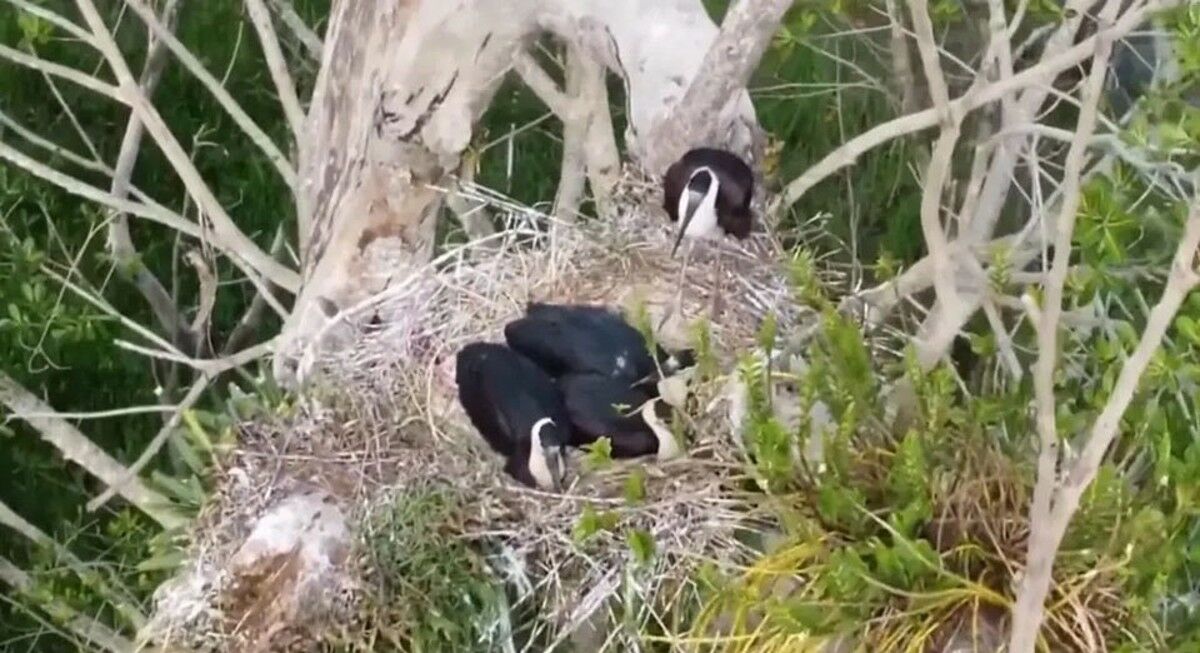Stork raving success: Endangered bird’s triumphant return to Thailand

In a ground-breaking win for wildlife conservation, Thailand has achieved an unprecedented milestone: critically endangered Asian woolly-necked storks have bred in the wild for the first time. These majestic birds, once at risk of vanishing forever, are back and thriving in their natural habitat.
Officials from the Zoological Park Organisation of Thailand and Khao Kheow Open Zoo were thrilled to reveal the news after seven years of hard work. Their efforts to reintroduce the species into the wild have finally paid off.
This marks not just a national first but a global triumph for conservation. It’s the world’s first recorded instance of a captive-raised stork being rewilded and successfully breeding, following strict guidelines from the IUCN Species Survival Commission and the Association of Zoos and Aquariums.
Released into the Dong Yai Wildlife Sanctuary in July 2021 as a tribute to His Majesty King Maha Vajiralongkorn Phra Vajiraklaochaoyuhua’s birthday, 14 storks, including the breeding pair, were rehabilitated over three years. The storks were carefully prepared for life in the wild, and it seems the gamble paid off, said a zoo spokesperson.
“This is a monumental success for conservation.”
The three chicks, now over a month old, are being nurtured by their parents and the supportive local community in Non Din Daeng district, Buriram province, reported Pattaya Mail.
It’s a story that shows the power of dedication—and a little help from nature.
In related news, the Coastal Aquaculture Research and Development Centre in Trang has successfully bred over 20 species of clownfish, commonly known as Nemo fish, this year, resulting in sales surpassing those of the previous year and generating nearly 1 million baht in revenue.
In other news, two newly discovered species of land slugs have been identified in Thailand, prompting further research on their conservation. The Animal Systematics Research Unit at Chulalongkorn University revealed these findings on September 23.
Latest Thailand News
Follow The Thaiger on Google News:


























